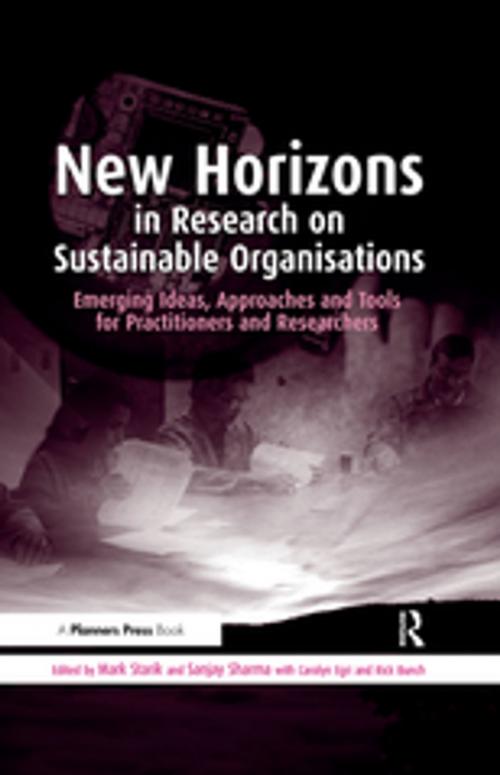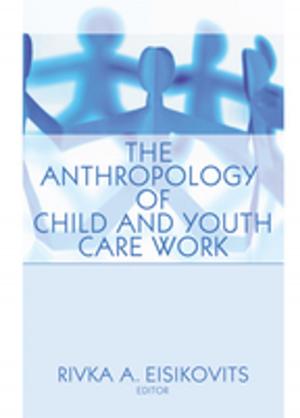New Horizons in Research on Sustainable Organisations
Emerging Ideas, Approaches and Tools for Practitioners and Researchers
Business & Finance, Economics, Sustainable Development, Business Reference, Business Ethics| Author: | ISBN: | 9781351281065 | |
| Publisher: | Taylor and Francis | Publication: | October 24, 2017 |
| Imprint: | Routledge | Language: | English |
| Author: | |
| ISBN: | 9781351281065 |
| Publisher: | Taylor and Francis |
| Publication: | October 24, 2017 |
| Imprint: | Routledge |
| Language: | English |
Environmental sustainability practice and research have advanced over the past decade from novelty to near-mainstream status today. During this environmentally critical time period, sustainability practitioner techniques, such as environmental, energy and social auditing, other sustainability information and related systems, and a wide variety of environmental sustainability approaches have been developed, improved and institutionalised, advancing both the practice and research of environmental sustainability management and policy. However, academics and practitioners in the sustainability field still have widely differing perspectives on what a sustainable organisation is or might be, but seldom take the opportunity to share these respective sustainability visions, let alone the multiple ways to achieve them. New Horizons in Research on Sustainable Organisations is intended to bridge this gap between academics and practitioners with cutting-edge research from both groups on progress towards sustainability.
After working on sustainability-related projects involving other academics, both research- and practitioner-oriented graduate students, consultants, managers and activists, the lead co-editors of this volume saw the need to encourage information exchanges among differing networks of sustainability stakeholders to create a pathway for researchers and practitioners in the general area of organisations and the natural environment to address issues of common interest. There are many networks in the general subject area, but the cross-pollination of ideas between academics and practitioners remains sketchy. New Horizons in Research on Sustainable Organisations is intended to present and encourage such cross-pollination.
The chapters in this volume are presented in three subsets, generally proceeding from the most "macro" to the most "micro" in terms of perspective and applicability. However, this arbitrary division belies the integration from macro through meso (or mid-range) to micro levels that is apparent in these studies. Macro approaches typically include wider geographic scopes, greater numbers of stakeholders, and more complex explanatory factors than micro approaches. Each chapter adopts one or more particular sustainability world-view and then grounds these and the other chapter elements within actual organisations. Therefore, the reader is advised to envision not a one-dimensional continuum but rather a circle in which the macro view both feeds back and feeds forward to the micro view.
This volume addresses a number of intriguing and important sustainable organisation phenomena such as multiple sustainable development perspectives, changing environmental politics, environmental management systems variations, voluntary environmental programme performance, complex adaptive systems, and environmental technology development. Additionally, several models are suggested, such as cultivation, capabilities and business ecology frameworks.
Environmental sustainability practice and research have advanced over the past decade from novelty to near-mainstream status today. During this environmentally critical time period, sustainability practitioner techniques, such as environmental, energy and social auditing, other sustainability information and related systems, and a wide variety of environmental sustainability approaches have been developed, improved and institutionalised, advancing both the practice and research of environmental sustainability management and policy. However, academics and practitioners in the sustainability field still have widely differing perspectives on what a sustainable organisation is or might be, but seldom take the opportunity to share these respective sustainability visions, let alone the multiple ways to achieve them. New Horizons in Research on Sustainable Organisations is intended to bridge this gap between academics and practitioners with cutting-edge research from both groups on progress towards sustainability.
After working on sustainability-related projects involving other academics, both research- and practitioner-oriented graduate students, consultants, managers and activists, the lead co-editors of this volume saw the need to encourage information exchanges among differing networks of sustainability stakeholders to create a pathway for researchers and practitioners in the general area of organisations and the natural environment to address issues of common interest. There are many networks in the general subject area, but the cross-pollination of ideas between academics and practitioners remains sketchy. New Horizons in Research on Sustainable Organisations is intended to present and encourage such cross-pollination.
The chapters in this volume are presented in three subsets, generally proceeding from the most "macro" to the most "micro" in terms of perspective and applicability. However, this arbitrary division belies the integration from macro through meso (or mid-range) to micro levels that is apparent in these studies. Macro approaches typically include wider geographic scopes, greater numbers of stakeholders, and more complex explanatory factors than micro approaches. Each chapter adopts one or more particular sustainability world-view and then grounds these and the other chapter elements within actual organisations. Therefore, the reader is advised to envision not a one-dimensional continuum but rather a circle in which the macro view both feeds back and feeds forward to the micro view.
This volume addresses a number of intriguing and important sustainable organisation phenomena such as multiple sustainable development perspectives, changing environmental politics, environmental management systems variations, voluntary environmental programme performance, complex adaptive systems, and environmental technology development. Additionally, several models are suggested, such as cultivation, capabilities and business ecology frameworks.















